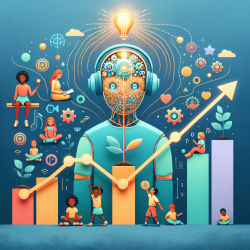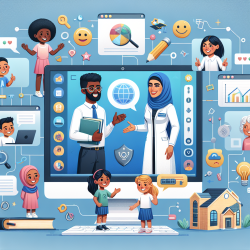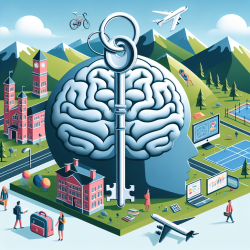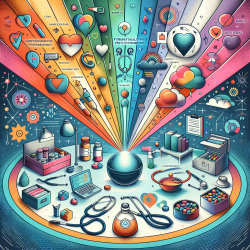As practitioners in the field of speech-language pathology, we are always on the lookout for innovative tools that can enhance our therapeutic interventions and provide better outcomes for children. One such tool, highlighted in the research article "Assessing Mood With the Identifying Depression Early in Adolescence Chatbot (IDEABot): Development and Implementation Study," offers promising insights into early depression detection among adolescents. This blog aims to distill the key findings of the study and explore how we can incorporate these insights into our practice.
Introduction to IDEABot
The IDEABot is a WhatsApp-based chatbot designed to collect longitudinal data on adolescents' mood. The study involved Brazilian adolescents and utilized WhatsApp's features like emojis and recorded audio messages to gather data. The chatbot was tested and co-developed with adolescents to ensure its relevance and acceptability.
Key Findings
- High Engagement: The IDEABot showed high engagement rates with 80.7% and 92.4% acceptance in the second- and third-year follow-ups, respectively.
- Low Attrition: The attrition rates were impressively low, with only 0.9% and 0.8% of participants failing to engage after the initial interaction.
- High Compliance: The compliance rates were 91% and 76% for the second- and third-year follow-ups, respectively, indicating that participants consistently responded to the chatbot prompts.
Practical Applications
Based on these findings, here are some practical applications for speech-language pathologists:
1. Integrate Chatbots for Continuous Monitoring
Using a chatbot like IDEABot can provide continuous, real-time monitoring of a child's mood. This can be particularly useful for children who are at risk of depression, allowing for timely interventions.
2. Enhance Engagement Through Familiar Platforms
Leveraging platforms that children are already familiar with, such as WhatsApp, can increase engagement and reduce the perceived burden of data collection. This approach can be extended to other therapeutic activities and assessments.
3. Utilize Multimodal Data Collection
The IDEABot collects both text and audio data, providing a richer dataset for analysis. This multimodal approach can be applied to speech-language assessments to gain deeper insights into a child's communication abilities and emotional state.
Encouraging Further Research
While the IDEABot shows great promise, it is essential to continue research to explore its full potential and address any limitations. Future studies could focus on integrating more advanced natural language processing techniques to enhance the chatbot's responsiveness and accuracy.
Conclusion
The IDEABot represents a significant advancement in the use of technology for early depression detection among adolescents. By incorporating such innovative tools into our practice, we can enhance our therapeutic interventions and provide better outcomes for children. To read the original research paper, please follow this Assessing Mood With the Identifying Depression Early in Adolescence Chatbot (IDEABot): Development and Implementation Study.










